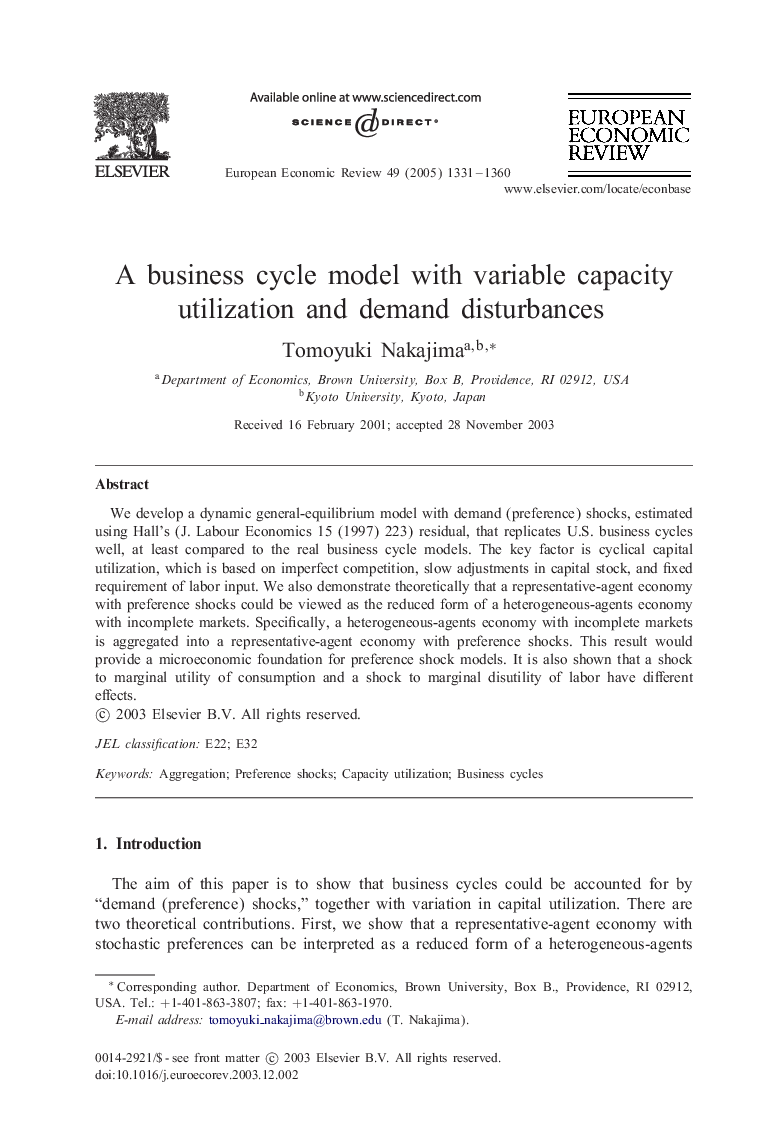| Article ID | Journal | Published Year | Pages | File Type |
|---|---|---|---|---|
| 9550864 | European Economic Review | 2005 | 30 Pages |
Abstract
We develop a dynamic general-equilibrium model with demand (preference) shocks, estimated using Hall's (J. Labour Economics 15 (1997) 223) residual, that replicates U.S. business cycles well, at least compared to the real business cycle models. The key factor is cyclical capital utilization, which is based on imperfect competition, slow adjustments in capital stock, and fixed requirement of labor input. We also demonstrate theoretically that a representative-agent economy with preference shocks could be viewed as the reduced form of a heterogeneous-agents economy with incomplete markets. Specifically, a heterogeneous-agents economy with incomplete markets is aggregated into a representative-agent economy with preference shocks. This result would provide a microeconomic foundation for preference shock models. It is also shown that a shock to marginal utility of consumption and a shock to marginal disutility of labor have different effects.
Related Topics
Social Sciences and Humanities
Economics, Econometrics and Finance
Economics and Econometrics
Authors
Tomoyuki Nakajima,
